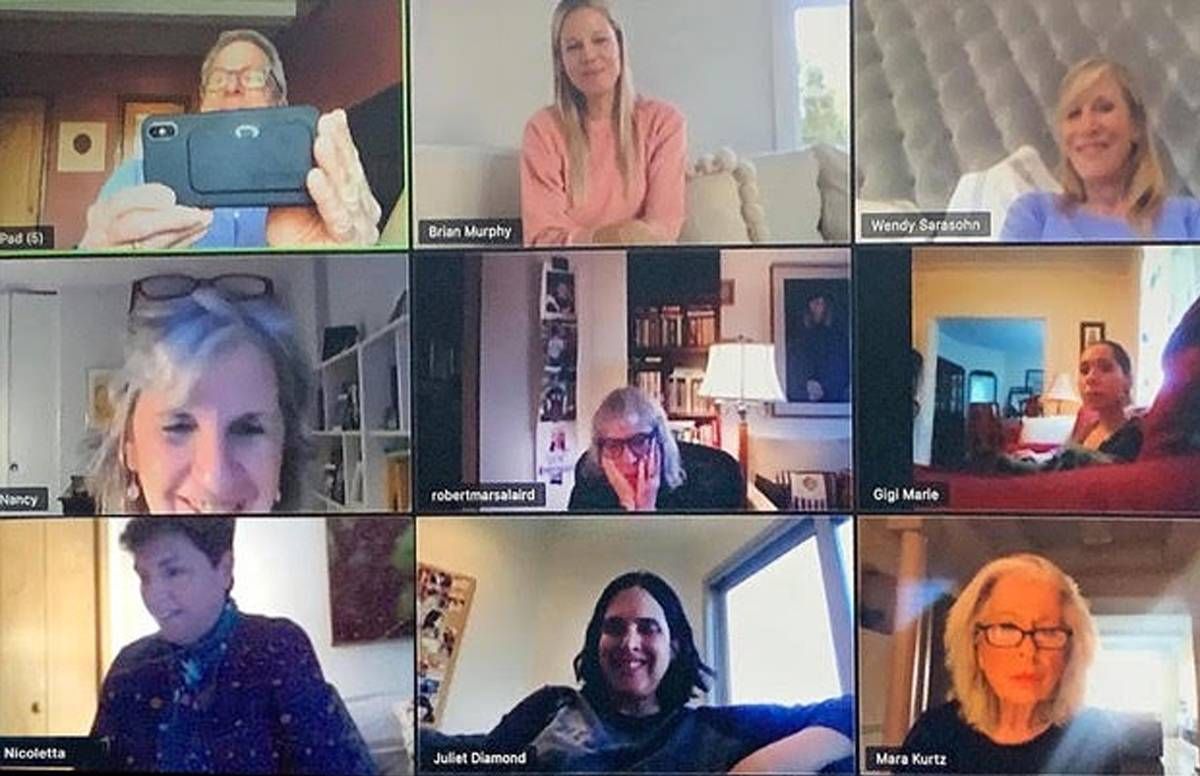33 Reasons Virtual Teaching Has Made Me a Better Writing Instructor
And why the COVID-19 Zoom classes made my writing students better, too
Considered technologically inept by people who know me and by strangers who have heard my curses and cries for help in the “quiet” New School faculty room in New York City, I am as surprised as anyone that I’m not just Zoom teaching my advanced nonfiction class. I am digging it.

So are my adult students.
I am 72 years old and began teaching 50 years ago. I started with first grade in a New York City public school, then offered writing instruction at The New School, Hunter College and New York University and, for many decades, I’ve been teaching an advanced nonfiction workshop of personal essayists, memoirists and op-ed writers in my living room.
My students now have more time, are reading more and have a greater sense of urgency in their writing.
Some of my workshop students have been in the class for as many as 17 years, and not because they flunked. They are good writers and hard workers who stay with it revising and revising. Some have had essays and books published that came out of the class.
How COVID-19 Changed My Students Writing and My Teaching
Then came the pandemic.
In March, when remote teaching was about to become a reality, a longtime student of mine volunteered to host our sessions virtually, sending the Zoom links and offering newcomers instructions beforehand. Another volunteered to digitally line up everyone’s manuscripts before each class for easy access.
Frankly, I wasn’t sure how it would go. Turns out: it is terrific!
The way I now teach and the way the students now learn is better than how we used to do it in person. In July 2020, two longtime students had essays they wrote during the summer session accepted for publication.
The structure of our sessions hasn’t changed. The students still read their work aloud. The rest of us still follow along with our copies, write comments on the manuscript and then discuss it.
What has changed: instead of a maximum of five pages as before, students now submit up to three pages by the morning of class. Those who can, and wish, have an opportunity to read the work before we start Zooming.
33 Reasons Classes Are Better for Us
But I think there are 33 other reasons why the virtual writing classes have been so successful for my students and for me:
- I don’t have to clean my guest bathroom beforehand
- Recalling the training I received in 1970 that the teacher should immediately set the tone and let the class know what is expected and can ease up after, I am now stricter and more emphatic, beginning each session with very clear rules and boundaries
- I tell my students I do not want them to chitchat
- Or eat
- Or walk around
- I convey a mix of toughness and tenderness, as I remind them that writing is hard work
- Harder than discussing it
- Harder than having written
- I remind them, too, that the pandemic is probably giving them more to say and more to reflect upon which hopefully inspires them to dig deeper (it actually has)
- My students now have more time, are reading more and have a greater sense of urgency in their writing
- Their writing is stronger because it is more urgent
- After many, many revisions; my students are now actually more eager and willing to revise and revise
- The pandemic publication success of two of the students inspires and excites everyone
- Among my strengths as a writing teacher is having what my grandmother called “good rappaport” with students, from those who are new to the process to seasoned pros; with Zooming, we have "greater rappaport"
- It helps that I can now look out and see everyone at the same time in their natural habitats with their dogs, cats and, if they have curious loved ones, their partners or children
- I can see what is on my students’ bookshelves and hear how their pets sound, which is fun for us
- And know at one glance, up close and personal, what their natural and dyed hair colors are — and if they have gray roots
- It helps that they can see my home office
- Which I declutter before we Zoom
- By putting my piles of paper in a closet and under the sofa which I clear off except for the colorful throw blanket and decorative pillows
- Our 7:00 pm restroom break has bonded us further when I’ve opened my window and we’ve participated in the New York City pandemic cheer for health care workers
- I’ve learned how to track changes in red in the emailed manuscripts
- It is getting easier and easier
- As do most things one does over and over
- Including Zooming and other technological things that once threw me
- I am much quieter during class than in the past, letting students do more of the commenting
- I make more detailed comments on their manuscripts and when I send the pieces back, I tell students they can email me if they wish to discuss anything, giving them more time and individual attention than I did before
- They want more of me now
- I want more of them
- Despite the clarity and insistence with which I establish the ground rules each week, we sometimes find ourselves relaxing and chatting about books, family, struggles, haircuts, hair colors and more
- We laugh
- They are taking greater risks, continuing to be braver, more self-revelatory and more truthful in their writing
- I could not be more thrilled.
Read More

